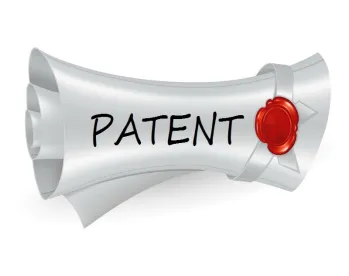For defendants in patent infringement cases, the strategy of filing for reexamination of the patent-in-suit with the U.S. Patent Office is a common tactic to short-circuit costly litigation—as defendants typically request a stay of the litigation while the reexam proceeds. Such stays, however, are not automatic but instead left up to the court’s discretion. In one recent case, a Massachusetts court brightened the plaintiff’s day by denying the defendant’s motion to stay.
Plaintiff Brite-Strike is a manufacturer of tactical flashlights, and holds a patent on a flashlight with a unique user-operated switch. Plaintiff Telebrands, a marketing company, is the exclusive licensee of Brite-Strike’s patent. In August 2016, Plaintiffs filed a patent infringement suit against E. Mishan & Sons (“Emson”), a manufacturer that produces competing flashlight products. Emson subsequently asserted several defenses and counterclaims, and also filed with the USPTO a request for reexamination of the patent-in-suit. Based on that request, Emson moved the court for a stay of the litigation.
In deciding the motion, Judge Gorton evaluated (1) whether the stay would unduly prejudice or present a clear tactical disadvantage to Emson; (2) whether the stay would simplify the issues and trial of the case; and (3) whether discovery is complete and whether a trial date has been set.
With respect to the first factor, the court found that the long pendency of reexamination proceedings could significantly prejudice Plaintiffs because they are in direct competition with Emson. In addition, the court noted that, if it elected to grant the stay here, a concurrent action in the Southern District of New York filed by Emson would nevertheless proceed—thereby imposing a tactical disadvantage on Plaintiffs. As a result, Judge Gorton concluded that this factor clearly favored Plaintiffs.
The court further determined that the second factor likewise favored Plaintiffs. While the litigation involves numerous affirmative defenses and counterclaims raised by Emson, Judge Gorton acknowledged that the reexam would only resolve the issue of non-obviousness of the patent based on a limited set of prior art references. As such, the Court found that the simplification factor does not favor a stay.
On the third factor, even though the case is still at an early stage, thus favoring Emson, Judge Gorton declined to grant the stay based on this factor alone. He reasoned that, in view of the substantial tilt of the first two factors toward Plaintiffs, a stay would not be prudent. Accordingly, the Court denied Emson’s motion to stay the case.
Judge Gorton’s opinion presents useful considerations for accused infringers to consider before proceeding with a motion to stay. In this instance, the Court’s decision illuminates why, in some circumstances, a stay pending reexamination may not make sense.
The case is Brite-Strike Technologies, Inc. and Telebrands Corp. v. E. Mishan & Sons, Inc., Case No. 16-cv-11672 , before Judge Nathaniel M. Gorton. A copy of the Court’s order can be found here.



 />i
/>i

